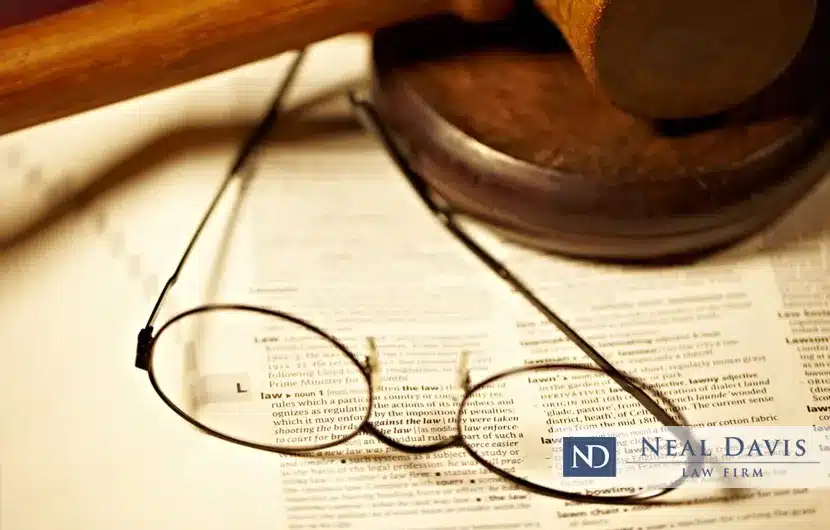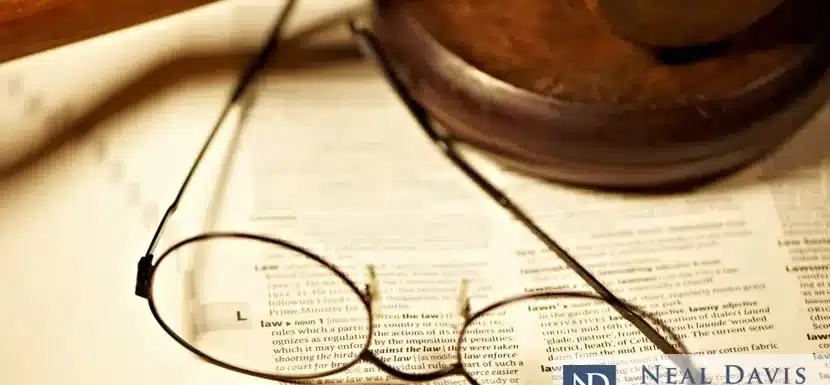
At Houston’s Neal Davis Law Firm, we deeply value the power of higher education. To show our commitment and support to aspiring students, we proudly sponsor an annual $1,000 scholarship essay contest. This initiative reflects our dedication to fostering academic growth and providing financial aid to help students achieve their educational goals.
This year, we challenged college students to show off their writing skills and legal insights by responding to the following prompt in 500 words or less:
The ethics of defending the guilty: A criminal defense attorney’s job is to defend their client, regardless of whether or not they believe that person is guilty. This raises an interesting ethical question: Is it ever justifiable to defend someone who you know is guilty of a crime? How does this impact the moral compass of defense attorneys, and what role should they play in the justice system?
We received more than 400 thoughtful essays on this topic, and after much deliberation, we’ve finally chosen a winner: Tilia Baratta from the University of Maine!
Here’s her winning essay:
Voltaire once said “It is dangerous to be right in matters on which the established authorities are wrong.” During this time, (and really most times) France was going through political unrest; during the leadup and fallout of the American Revolution, and after the great “Enlightenment,” French proletariat were rising in discussion about the ethics of any government that was not a true democracy, and how well their laws reflected their needs. A friend of these soon-to-be French revolutionaries, Thomas Paine, said “Government, even in its best state, is but a necessary evil; in its worst state, an intolerable one;” painting the government as no standard of morality and justice, as it is oft to be portrayed. In reality no government, as both these men, spited by most governments, would tell you, is perfect, or even particularly good. Government has no capacity to judge the difference between moral or vice, the difference between justice and injustice. She sees through the foggy vinyl of the laws which have been crafted for her, such laws which can never truly be representative of the morals and beliefs of the people; both in that this nation contains such diverse politics and beliefs, and in that she is no democracy to begin with.
Therefore, the role of a defense attorney is to inject that humanity into this wholly inhuman and robotic process of the court of law. Without such an attorney, to judge someone on their “guilt of a crime” takes in no context for that crime’s necessity to the individual, nor its morality in it being made illegal. An obvious piece of evidence for this would be Martin Luther King, sent by an immoral government to the jailhouse again and again for doing something that was not only right, but in itself legal as according to the constitution that framed this nation. Even the government ignores her own laws, so how is it not the people’s right to do so in favor of morality and justice? No morality should be stripped from any such attorney who devotes their life to this noble cause of defense, saving their clients from the cruel yoke of being a criminal in America: a life changer, often one unwarranted by the actual crime.
But this is all ignoring the real presence of those who do commit needless, hateful, and truly wrong crimes. And if that client chooses to maintain his or her position of innocence, a lawyer finds themselves in the position of defending a moral vice. But, “Your gentleness shall force More than your force move us to gentleness;” (Shakespeare) kindness and sympathy do more to rehabilitate an abject man than hate.
No man is born evil, he is shaped that way by his society. Therefore defend him: let him have his lesser years in jail, the sooner he is to come out changed. And then, most “evil” men aren’t evil, just portrayed so by laws unrepresentative of the people or morality. Therefore defend him: favor not a guilty government over an innocent man.
Citations
Birmingham campaign. The Martin Luther King, Jr. Research and Education Institute. https://kinginstitute.stanford.edu/birmingham-campaign
Bristow, W. Enlightenment. Stanford Encyclopedia of Philosophy. https://plato.stanford.edu/entries/enlightenment/
Paine, T. Thomas Paine: Common sense. ushistory.org. https://www.ushistory.org/Paine/commonsense/sense2.htm#:~:text=Society%20in%20every%20%20state%20is,heightened%20by%20reflecting%20that%20we
Shakespeare, W. As you like it. LitCharts. https://www.litcharts.com/shakescleare/shakespeare-translations/as-you-like-it/act-2-scene-7
Voltaire. Voltaire ’s view of oppression from the Authority. Bartleby. https://www.bartleby.com/essay/Voltaire-s-View-Of-Oppression-From-The-PK77VCEN9BWQ#:%20~:text=It%20is%20dangerous%20to%20be,the%20established%20authorities%20are%20wrong.%20&text=The%20struggles%20against%20authority%2C%20repeatedly,take%20place%20in%20%20the%20history
About the winner
Tilia Baratta is a history major and honors student at the University of Maine. She enjoys hiking, reading and learning about intellectual history.

Think you could write a winning essay? Be sure to enter our next scholarship essay contest!
We’d like to thank all of the students who joined in this year’s essay challenge, and congratulations to Tilia for crafting the winning essay!
Didn’t get a chance this time, or eager for another shot? Visit our scholarship page for all the details of our next contest. Remember, you need to be enrolled in college to qualify. If you have any questions about the contest or essay guidelines, don’t hesitate to reach out.
Wishing you the best of luck in your educational endeavors!

